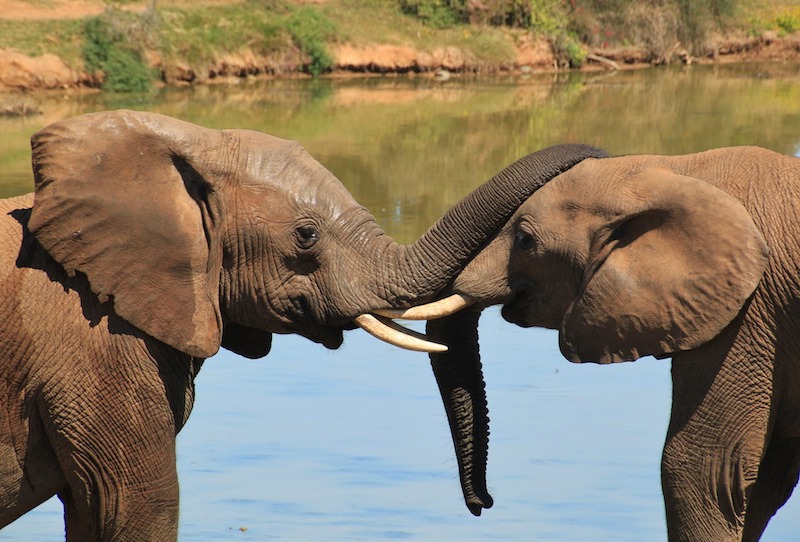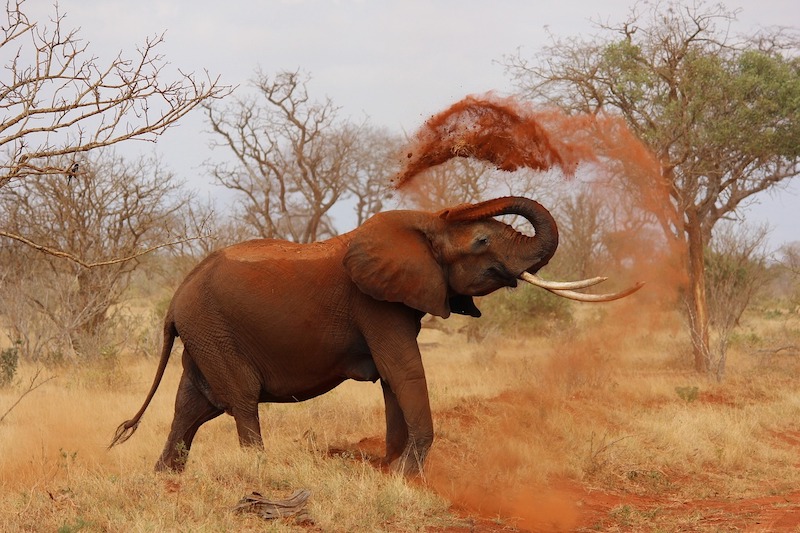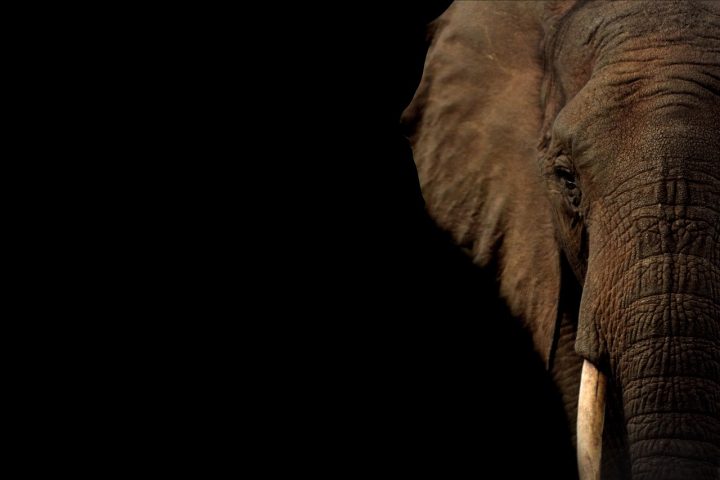Elephants are known for their extraordinary memory, and there is even an expression called having the memory of an elephant. But is it true that elephants never forget?
“The elephant never forgets,” they say. But how much truth is there in this statement? How good is an elephant’s memory?
While it’s not entirely accurate to say that an elephant never forgets, thick-skinned animals have evolved to remember details that are key to their survival. For example, older African elephants (Loxodonta africana) can remember the unique sounds and smells of predators (and even distinguish between different groups of people based on their scent and clothing colour), retrace their steps to find a water source on the arid plain, and distinguish family members and friends from hundreds of other elephants.
“Being able to search for enough food and water in a highly dynamic environment such as the savanna, while also managing complex social relationships and avoiding the risk of predation, requires a brain that can process and recall detailed information,” says Graeme Shannon, lecturer in zoology at Bangor University.
“This is a critical skill that could mean the difference between life and death.”
Elephants are not the only animals foraging for food on the savannah, but the unique challenges faced by these thick-skinned creatures require precise memories. For example, each elephant needs to eat around 150kg of plants each day, and elephants embark on long migratory journeys between the wet and dry seasons to satisfy their voracious appetites. Whether they survive this migration depends largely on their knowledge of the route.
“An elephant’s memory makes it easy to recall long migration routes that include trees and water sources, which are important for surviving a very long migration,” says Caitlin O’Connell, a faculty member at Harvard Medical School who studies elephant hearing.
Memory becomes particularly important during a drought. A 2008 study in Biology Letters observed that elephant herds with older parents who had lived through previous droughts successfully led their herds to water, presumably by remembering how the herd had survived the previous drought.
However, one herd was led by a young female matriarch who could not remember how the previous generation had coped with the last drought. Instead of travelling across new terrain to find water, her herd stayed put, and the calves suffered 63 per cent mortality that year. The normal mortality rate during drought is only 2 per cent.
O’Connell, who was not involved in the research, said: “Hence the importance of older females as important stores of information. This is also why long-term memory can directly lead to survival.”
Elephants also need their memory to drive what biologists call the “divide-and-conjoin” dynamic. In this arrangement, also common among primates and some whale species, a nuclear family unit of elephants comes into contact with hundreds of other elephants throughout the year (merger), but then splits into the same core group (splitting).
“Operating in a highly complex social world requires considerable brainpower,” Shannon said. “It is crucial for elephants to have detailed knowledge of familiar families and close relatives, to be able to recognise strangers, and to be more careful when interacting with these unknown individuals who may behave aggressively and pose a threat to the family unit.

Unknown elephants are not the only threat these thick-skinned people need to keep in mind to survive. Shannon, Proceedings of the Royal Society B: Biological Sciences in 2011, which showed that young elephants did not react adequately to the roaring calls of male lions, while older elephants (those who remembered previous lion attacks) took up defensive positions.
In another 2014 study published in the Proceedings of the National Academy of Sciences, Shannon and colleagues showed that elephants can also recognise the sounds of threatening humans. The researchers found that elephants were more likely to take precautions when they heard recorded sounds of the semi-nomadic Maasai people, who periodically kill elephants, than the sounds of other Kenyan ethnicities. Elephants were more likely to defend themselves when they heard recorded voices of Masai men, as opposed to recordings of Maasai women and children.
The elephants’ incredible memory and cognitive abilities even allowed them to use human language to identify the threat posed by different groups of people.
Elephants’ unique brain structure may be what allows them to unlock these impressive memory and cognition skills. A series of studies led by Bob Jacobs, a professor of psychology specialising in neuroscience at Colorado College, showed that elephants’ cortical neurons are radically different from those of other intelligent species.
Jacobs thinks that the unique properties of these neurons indicate that elephants think carefully about their memories. “From a cognitive perspective, my colleagues and I believe that the integrative cortical circuits in the elephant support the idea that they are fundamentally thinking animals.”
Elephants also have the largest absolute brain size among land mammals and the largest temporal lobe relative to body size; the temporal lobe is the part of the brain responsible for processing sounds and encoding memory.
The fact that elephants rely so heavily on their memory makes conservation efforts all the more necessary. Poachers target the biggest elephants with the biggest tusks, and these are often the oldest elephants. the repositories of the herd’s collective memory. These losses mean that younger elephants are left with a herd that lacks the experience to move to safety during the dry season.
Likewise, if elephant survival depends on elders remembering migration routes, a development that alters the landscape and cuts off important routes could have devastating consequences for entire herds.
“Their habitat is threatened by human structures that block important migration routes, leaving them confined to marginal lands that often lack the crucial resources needed to survive the long dry seasons,” O’Connell said. The obvious implication is the importance of protecting critical migration routes.”
Live Science. 29 December 2023.


